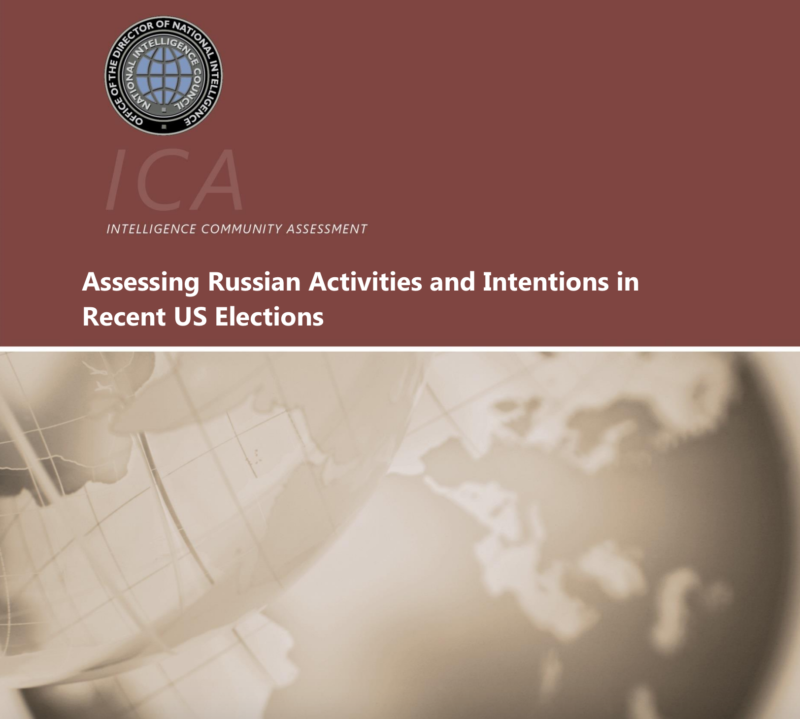
Enlarge / Light reading for a Friday afternoon.
Shortly after intelligence officials delivered a highly-classified briefing on the Russian government’s alleged interference in US politics to President-elect Donald Trump, the Office of the Director of National Intelligence (ODNI) published an unclassified version of the report. This version outlines the majority of the joint conclusions of the Central Intelligence Agency, National Security Agency, and Federal Bureau of Investigation. While it contains no major new hacking revelations, what is new is its focus on the role of Russia’s state-funded media organization, known as RT, and its international satellite media operations.
Ars is still preparing a more thorough analysis of the report and its findings. But the gist of the CIA, NSA, and FBI analysts’ findings is that the Russian Federation’s president, Vladimir Putin, directly ordered intelligence agencies to collect data from the Democratic National Committee, the Hillary Clinton presidential campaign, and other organizations, and he orchestrated an effort to discredit Clinton, the Democratic party, and the US democratic political process through “information operations.”
We assess Russian President Vladimir Putin ordered an influence campaign in 2016 aimed at the US presidential election. Russia’s goals were to undermine public faith in the US democratic process, denigrate Secretary Clinton, and harm her electability and potential presidency. We further assess Putin and the Russian Government developed a clear preference for President-elect Trump. We have high confidence in these judgements.
In an appendix to the report, the agencies laid out a detailed, publicly-sourced analysis of RT’s alleged propaganda operations, including television programming that promoted the Occupy Wall Street movement and focused on information countering US government domestic and foreign policy. RT, in the agency’s assessment, used coverage of the Occupy Movement to promote the notion that change wasn’t possible within the US democratic system and that only “revolutionary action” could affect real change.